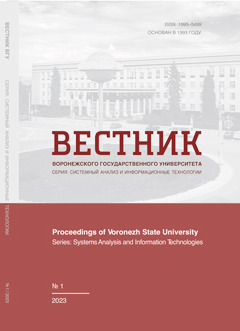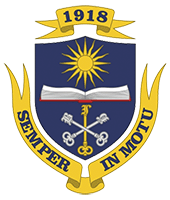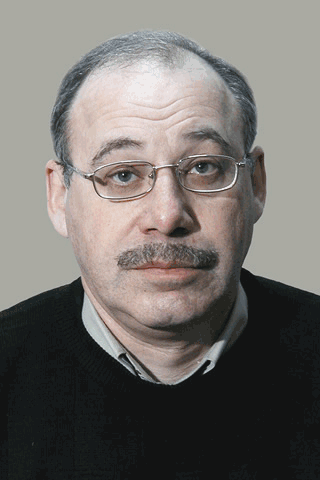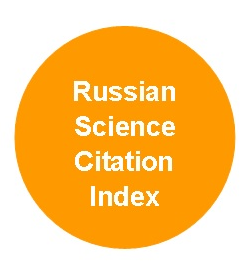Агентное моделирование коллективного принятия решений в малой группе: роль формального лидера
Аннотация
Агентное моделирование является перспективным инструментом исследования коллективного поведения и обладает высоким потенциалом для повышения эффективности групповой работы. С помощью агентных моделей может решаться целый ряд задач поддержки групповой работы, включая подбор состава команды, формирование рекомендаций протоколов работы и многие другие. В статье предлагается агентная модель для исследования влияния характеристик формального лидера на работу группы при коллективном принятии решений. Сама задача моделируется как максимизация некоторой «сложной» функции, осуществляемая совместно группой агентов. Каждый агент может исследовать проблемное пространство самостоятельно и сообщать другим агентам о результатах такого поиска. Консолидированное групповое решение формируется и уточняется на основе индивидуальных результатов, полученных агентами, при этом в моделируемом протоколе особую роль играет результат формального лидера группы. С помощью вычислительного эксперимента оцениваются влияние собственных поисковых способностей («интеллекта») лидера, его предрасположенности к коммуникации («разговорчивости») и степени влияния на эффективность группового решения. Результаты моделирования показали, что в рамках используемого протокола согласования в случае, когда степень влияния лидера ограничена, его низкие поисковые способности не оказывают существенного воздействия на эффективность находимого группой решения. В случае высокого влияния — появляется риск принятия неэффективных решений. Сам по себе полученный результат хорошо согласуется с практикой и является достаточно интуитивным. Однако, более важно то, что он показывает, что даже достаточно простые агентные модели позволяют исследовать особенности групповой работы и могут быть использованы для оценки протоколов такой работы, формирования правил совершения коллективных действий и, в целом, для поддержки эффективной работы групп.
Скачивания
Литература
2. Reia S. M., Amado A. C. and Fontanari J. F. (2019) Agent-based models of collective intelligence. Physics of Life Reviews. 31. P. 320–331. DOI
3. Bleda M., Querbes A. and Healey M. (2021) The influence of motivational factors on ongoing product design decisions. Journal of Business Research. 129 (February), P. 562–569. DOI
4. Lapp S., Jablokow K. and McComb C. (2019) KABOOM: an agent-based model for simulating cognitive style in team problem solving. Design Science. 5 (Riding 1997), P. 1–32. DOI
5. Cao S., MacLaren N. G., Cao Y., Marshall J., Dong Y., Yammarino F. J., Dionne S. D., Mumford M. D., Connelly S., Martin R. W., Standish C. J., Newbold T. R., England S., Sayama H. and Ruark G. A. (2022) Group Size and Group Performance in Small Collaborative Team Settings: An Agent-Based Simulation Model of Collaborative Decision-Making Dynamics J. M. Galán (ed.). Complexity. 2022. P. 1–16. DOI
6. Rojas-Villafane J. A. (2010) An agent-based model of team coordination and performance. Florida International University. DOI
7. Van Veen D. J., Kudesia R. S. and Heinimann H. R. (2020) An Agent-Based Model of Collective Decision-Making: How Information Sharing Strategies Scale with Information Overload. IEEE Transactions on Computational Social Systems. 7 (3). P. 751–767. DOI
8. Lim S. L. and Bentley P. J. (2019) Diversity Improves Teamwork: Optimising Teams using a Genetic Algorithm. 2019 IEEE Congress on Evolutionary Computation, CEC 2019-Proceedings. P. 2848–2855. DOI
9. Abrica-Jacinto N. L., Kurmyshev E. and Juárez H. A. (2017) Effects of the Interaction Between Ideological Affinity and Psychological Reaction of Agents on the Opinion Dynamics in a Relative Agreement Model. Journal of Artificial Societies and Social Simulation. 20 (3). DOI
10. Mckeown G. and Sheehy N. (2006) Mass media and polarisation processes in the bounded confidence model of opinion dynamics. Jasss. 9 (1). P. 33–63.
11. Van Eck P. S., Jager W. and Leeflang P. S. H. (2011) Opinion leaders’ role in innovation diffusion: A simulation study. Journal of Product Innovation Management. 28 (2). P. 187–203. DOI
12. Borowski E., Chen Y. and Mahmassani H. (2020) Social media effects on sustainable mobility opinion diffusion: Model framework and implications for behavior change. Travel Behaviour and Society. 19. P. 170–183. DOI
13. Kaiser C., Kröckel J. and Bodendorf F. (2013) Simulating the spread of opinions in online social networks when targeting opinion leaders. Information Systems and e-Business Management. 11 (4). P. 597–621. DOI
14. Anderson C. A. and Titler M. G. (2014) Development and verification of an agent-based model of opinion leadership. Implementation Science. 9 (1). DOI
15. Röchert D., Cargnino M. and Neubaum G. (2022) Two sides of the same leader: an agentbased model to analyze the effect of ambivalent opinion leaders in social networks. Journal of Computational Social Science. 5 (2). P. 1159–1205. DOI
16. Bakshy E., Mason W. A., Hofman J. M. and Watts D. J. (2011) Everyone’s an influencer: Quantifying influence on twitter. Proceedings of the 4th ACM International Conference on Web Search and Data Mining, WSDM 2011. P. 65–74. DOI
17. Averza A., Slhoub K. and Bhattacharyya S. (2022) Evaluating the Influence of Twitter Bots via Agent-Based Social Simulation. IEEE Access. 10, P. 129394–129407. DOI
18. Cao S., MacLaren N. G., Cao Y., Dong Y., Sayama H., Yammarino F. J., Dionne S. D., Mumford M. D., Connelly S., Martin R., Standish C. J., Newbold T. R., England S. and Ruark G. A. (2020) An Agent-Based Model of Leader Emergence and Leadership Perception within a Collective. Complexity. 2020. P. 1–11. DOI
- Авторы сохраняют за собой авторские права и предоставляют журналу право первой публикации работы, которая по истечении 6 месяцев после публикации автоматически лицензируется на условиях Creative Commons Attribution License , которая позволяет другим распространять данную работу с обязательным сохранением ссылок на авторов оригинальной работы и оригинальную публикацию в этом журнале.
- Авторы имеют право размещать их работу в сети Интернет (например в институтском хранилище или персональном сайте) до и во время процесса рассмотрения ее данным журналом, так как это может привести к продуктивному обсуждению и большему количеству ссылок на данную работу (См. The Effect of Open Access).



















